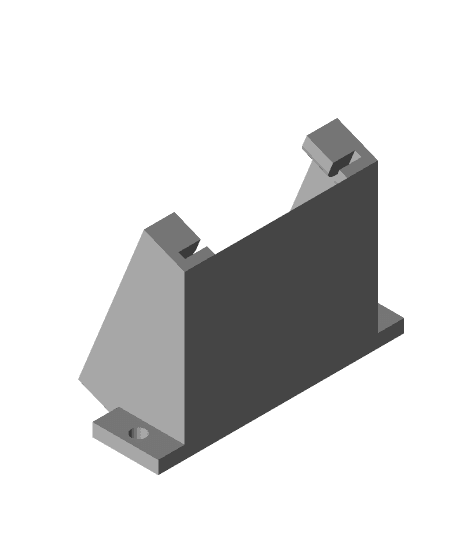Sunlu/Jayo FilaDryer S1 filament dryer 4010 blower fan mount
byglabifronsModel originally uploaded to Thingiverse at https://www.thingiverse.com/thing:4946616.
I wanted to use a 4010 blower instead of a larger fan for the inside of my FilaDryer as it doesn't need a huge amount of airflow, just a bit of circulation. I also wanted it quiet, and these are typically quieter than axial fans, but I wanted it even quieter, so I made a mount designed to be printed in TPU/TPE.
The bottom of the fan is angled so it circulates air circularly (is that redundant?) down across the heater plate and back across the top. When it's on, you can feel the air coming up as soon as you open the lid (whether the heater is on or not).
Inserting the fan is super easy, just flex the side out and slide it in. The TPU/TPE will spring back and grip it.
I printed this with 0.16mm layer height (standard 0.4mm nozzle) in some Inland TPE that I bought years ago. I used 2 walls, 10% grid infill (IIRC), with support interfaces enabled and the interface angle set to 50 degrees. Cura throws down two unneeded short lines on the bed that can be ignored and a tiny amount of support in the slots for the fan. This support is easily removed with hemostats or needle-nose pliers. Don't use too many walls or any more infill or you'll reduce any effectiveness this has towards sound isolation.
I may remix this to add a spot for a MP1584EN adjustable voltage reducer to slow the fan down a bit to make it even quieter. Please say something if you have any interest.
These are the instructions I used to wire in my fan: https://www.youtube.com/watch?v=6FG4O5l9XpE
Note that there is a labeled point on the board for a fan connector, but the mosfet, resistors, and protection diode are all missing. I don't know if the firmware will actually try and control it or not, but I'm interested if anyone can identify the missing mosfet. The resistors and diode on the other mosfet can be identified, but the other mosfet is huge and cannot be used in the fan position so I can't just buy another one of those). It would be very nice if the fan could be controlled by the firmware and not always-on.
Please let me know if this works with any other brands/models and I'll add them to the title to make this easier to find.
